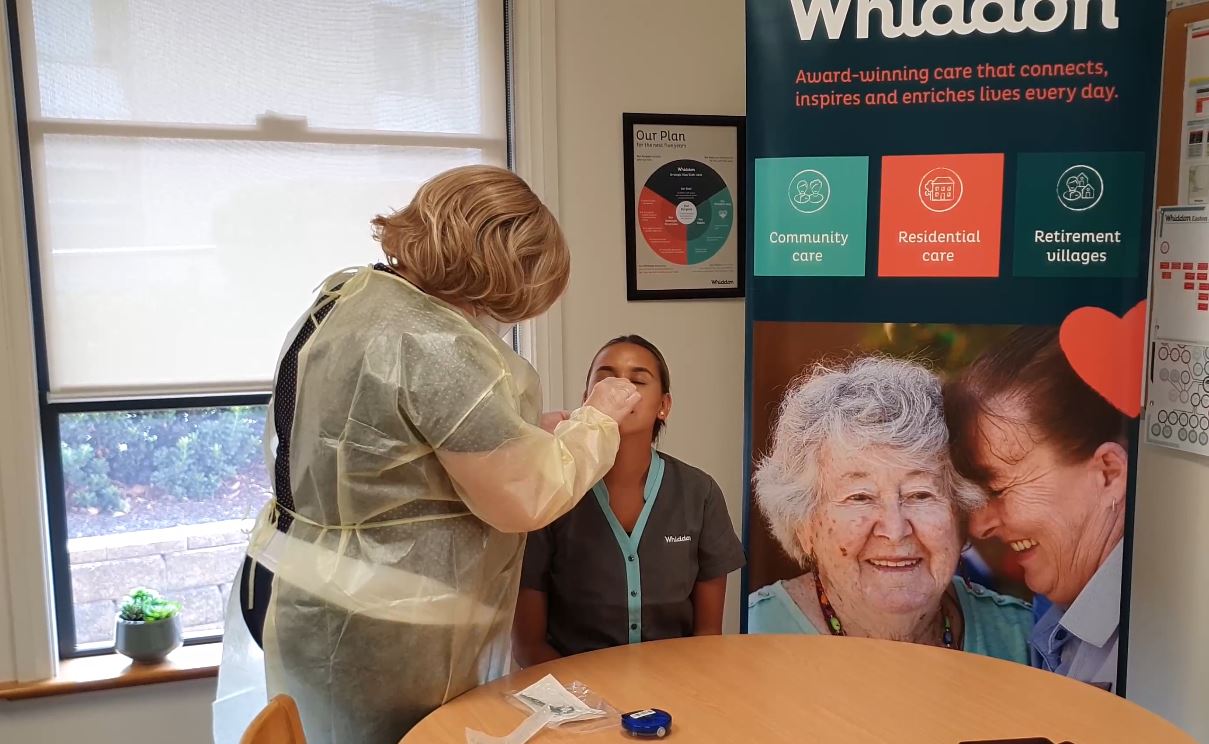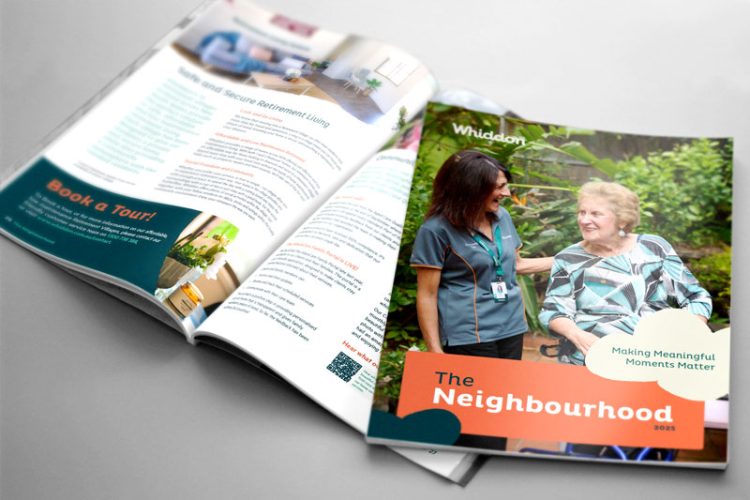Whiddon releases valuable healthcare and workforce findings from industry-first aged care rapid PCR testing trial

Date: 16 February 2022
Whiddon, partnered with Pantonic Health to conduct a rapid PCR testing trial at their largest aged care campus in South-west Sydney, using a portable shoebox-sized rapid PCR testing device (DnaNudge test).
The eight-week trial at Whiddon Easton Park utilised rapid PCR technology produced by UK based provider, DnaNudge, to detect COVID-19 through samples taken onsite, in just 90 minutes, eliminating the need for laboratory testing.
About the rapid PCR trial
During the trial, 116 tests were completed and 115 of the tests correlated with concurrent lab-processed PCR test results, indicating a 99.1% sensitivity of the rapid PCR tests against lab-processed PCR tests. The trial findings, which have been collated in a report, demonstrate the potential significant impact that a rapid PCR unit can have on maximising resident care and safety in a residential aged care setting, whilst minimising disruption on the critical health workforce.
Whiddon CEO, Chris Mamarelis, said he was pleased to partner with Pantonic Health to conduct the trial, which aimed to understand how rapid PCR testing can ensure early intervention, improved healthcare and infection control in a residential aged care setting, whilst increasing workforce safety and capacity.
“We saw 83% of employees who had lab-based PCR tests in December during the Omicron variant outbreak, return negative results. Due to lab delays, employees were waiting up to six days for their results and were required to self-isolating during this time. With onsite rapid PCR testing, these employees could have potentially returned to work much earlier, as soon as 90 minutes, to provide essential care during the peak of the pandemic.
“Rapid PCR testing could also give providers more control to optimise care delivery through early intervention strategies. Recently, the Federal Government announced the deployment of a new oral anti-viral treatment for COVID-19, Lagevrio (molnupiravir), to residential aged care services across the country. It has been provisionally approved for use within five days of the onset of COVID-19 symptoms. This highlights the critical importance of a timely diagnosis of COVID-19 in aged care residents, which rapid PCR testing units, once approved by the TGA, can provide.
The rapid PCR testing trial trial follows Whiddon’s industry-leading rapid antigen testing trial during the COVID-19 Delta variant outbreak, and subsequent rapid antigen testing trial in Community Care.
Regius Professor Chris Toumazou, CEO and co-founder of DnaNudge, and founder of the Institute of Biomedical Engineering at Imperial College London, said “DnaNudge is very excited to be working with Whiddon and Pantonic Health to demonstrate the benefits of our rapid, lab-free RT-PCR test in aged care settings, where the ability to rapidly identify COVID-positive individuals is of absolutely paramount importance, and key to infection control.
“Our CovidNudge test is a unique, portable true PCR platform that offers a high degree of multiplexing on a single chip, with 72 available wells enabling the simultaneous detection of new and emerging SARS-CoV-2 virus variants such as Delta and Omicron. We believe that CovidNudge is the only test that goes direct from sample to result, using a true gold-standard thermal cycling PCR technique that delivers results within 90 minutes. The value our solution has delivered across care homes and mental health services within the UK has been immense, with no trade-off whatsoever between speed and accuracy,” Professor Toumazou said.
What’s needed now?
“Rapid PCR testing is a game changer for aged care and other healthcare settings. We will be sharing our trial results with the Government, regulators and industry stakeholders. We want to see the rapid PCR units approved by the TGA as soon as possible. All aged care homes and disability setting across Australia require government subsidised access to these units, including all regional centres. Just as rapid antigen tests and protective personal equipment (PPE) have become the norm within health and aged care, rapid PCR units should follow suit,” Chris said.
To find out more, see an infographic with a snapshot of the trial findings.


